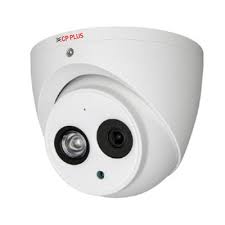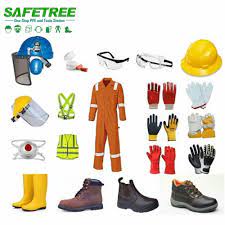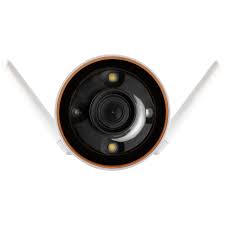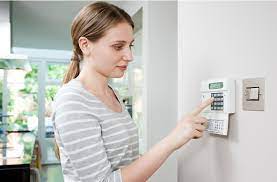Security cameras have become an essential tool for monitoring and safeguarding various spaces, from homes to businesses. One crucial feature that enhances the effectiveness of CCTV systems is the CCTV voice recorder. This innovative technology allows for not only video but also audio recording, providing a more comprehensive surveillance solution.
The integration of voice recording capabilities into CCTV systems offers several benefits. Firstly, it provides additional context to the video footage captured by the cameras. By capturing audio along with video, users can gain a more complete understanding of events and incidents that occur within the monitored area.
Furthermore, CCTV voice recorders can be valuable in investigations and evidence gathering. The audio recordings can serve as crucial evidence in legal proceedings or disputes by providing clear audio documentation of conversations or sounds that took place at a specific time and location.
In addition to enhancing security and surveillance capabilities, CCTV voice recorders can also be used for various other purposes. For example, in commercial settings, they can help monitor employee interactions with customers or ensure adherence to company policies and procedures.
It is important to note that the use of CCTV voice recording technology must comply with relevant privacy laws and regulations. Proper signage notifying individuals of audio recording should be displayed in areas where CCTV systems with voice recording are in operation to ensure transparency and compliance with legal requirements.
In conclusion, the integration of voice recording functionality into CCTV systems adds a new dimension to video surveillance by providing valuable audio information alongside visual data. This technology not only enhances security measures but also offers additional benefits in terms of evidence collection and monitoring activities within various environments.
7 Key Advantages of Integrating CCTV Voice Recorders for Effective Monitoring and Security
- Enhances surveillance by capturing both video and audio recordings.
- Provides additional context and details to recorded footage.
- Aids in investigations by offering clear audio evidence of events.
- Helps monitor employee interactions and adherence to protocols in commercial settings.
- Can serve as valuable evidence in legal proceedings or disputes.
- Offers a more comprehensive security solution for homes and businesses.
- Enhances overall monitoring capabilities with audio documentation of activities.
Seven Downsides of CCTV Systems with Voice Recording Features: Privacy, Legal, and Practical Challenges
- Privacy concerns due to audio recording without consent
- Potential legal issues related to unauthorized audio surveillance
- Increased storage requirements for storing audio data along with video footage
- Risk of capturing sensitive or confidential conversations unintentionally
- Difficulty in ensuring clear and high-quality audio recordings in all environments
- Possibility of misinterpretation or misuse of recorded conversations
- Higher cost associated with CCTV systems equipped with voice recording capabilities
Enhances surveillance by capturing both video and audio recordings.
The inclusion of CCTV voice recorder technology enhances surveillance capabilities by capturing both video and audio recordings. This pro allows for a more comprehensive monitoring system that not only provides visual evidence of events but also captures important audio context. By combining video and audio recordings, users can gain a deeper understanding of incidents and activities within the monitored area, improving overall security measures and investigative efforts.
Provides additional context and details to recorded footage.
The CCTV voice recorder offers the valuable advantage of providing additional context and details to the recorded footage. By capturing audio alongside video, this feature enhances the overall surveillance experience by offering more comprehensive information about events and incidents captured by the cameras. The audio recordings can provide crucial insights into conversations, noises, or other auditory cues that can significantly contribute to a better understanding of the situation being monitored. This added layer of detail not only improves security measures but also aids in investigations and evidence gathering by offering a more complete picture of what transpired within the monitored area.
Aids in investigations by offering clear audio evidence of events.
The use of CCTV voice recorders proves to be a valuable asset in investigations by providing clear audio evidence of events. This feature allows for a more comprehensive understanding of incidents captured on video, offering crucial context and details that can aid in determining the sequence of events and identifying individuals involved. The clear audio recordings serve as concrete evidence that can be instrumental in resolving disputes, corroborating testimonies, and ensuring accurate documentation of incidents for investigative purposes.
Helps monitor employee interactions and adherence to protocols in commercial settings.
In commercial settings, the use of CCTV voice recorders plays a crucial role in monitoring employee interactions and ensuring adherence to protocols. By capturing both video and audio, these systems provide a comprehensive overview of employee behavior and customer interactions. This pro of CCTV voice recorders not only helps in maintaining security but also enables businesses to evaluate customer service quality, identify training needs, and address any compliance issues effectively. The ability to monitor employee interactions and protocol adherence through voice recording enhances operational efficiency and contributes to a safer and more secure working environment.
Can serve as valuable evidence in legal proceedings or disputes.
The inclusion of a CCTV voice recorder in surveillance systems can serve as a crucial advantage by providing valuable audio evidence that can be used in legal proceedings or disputes. The ability to capture audio recordings along with video footage offers a comprehensive record of events, conversations, and interactions, which can be instrumental in resolving conflicts, verifying claims, and establishing facts. This feature not only enhances the credibility of the evidence presented but also helps ensure a more thorough and accurate representation of the events under scrutiny.
Offers a more comprehensive security solution for homes and businesses.
The inclusion of CCTV voice recorder technology in security systems offers a more comprehensive security solution for both homes and businesses. By capturing not only video but also audio, these systems provide a more complete picture of events and incidents that occur within the monitored area. This added layer of surveillance enhances the overall security measures in place, enabling users to have a more thorough understanding of activities taking place on their premises. The ability to record audio along with video ensures that no detail goes unnoticed, making CCTV voice recorders an invaluable asset in maintaining a secure environment for residents and businesses alike.
Enhances overall monitoring capabilities with audio documentation of activities.
The inclusion of CCTV voice recorder technology significantly enhances overall monitoring capabilities by providing audio documentation of activities. This pro allows for a more comprehensive surveillance approach, enabling users to not only see but also hear what is happening within the monitored area. By capturing audio alongside video footage, CCTV voice recorders offer a more detailed and accurate representation of events, making it easier to understand and analyze activities taking place on the premises. This feature proves invaluable in enhancing security measures and ensuring thorough monitoring of all relevant actions and conversations within the monitored space.
Privacy concerns due to audio recording without consent
Privacy concerns arise with the use of CCTV voice recorders due to the potential for audio recording without explicit consent from individuals within the monitored area. The capturing of audio alongside video footage raises issues regarding privacy rights and personal data protection. In situations where conversations or sensitive information is inadvertently recorded without consent, there is a risk of violating individuals’ privacy and confidentiality. This lack of transparency in audio recording practices can lead to legal implications and ethical dilemmas, highlighting the importance of implementing clear guidelines and obtaining proper consent when utilizing CCTV voice recording technology to address privacy concerns effectively.
Potential legal issues related to unauthorized audio surveillance
Unauthorized audio surveillance through CCTV voice recorders can pose significant legal risks and privacy concerns. One major con of this technology is the potential violation of laws and regulations governing the recording of audio in private or public spaces without consent. In many jurisdictions, the unauthorized interception of oral communications is illegal and can lead to serious legal consequences, including fines and lawsuits. Moreover, the misuse of CCTV voice recorders for eavesdropping or recording sensitive conversations without permission can erode trust and damage relationships, both personally and professionally. It is essential for organizations and individuals to be aware of the legal implications of using CCTV voice recorders for audio surveillance and to ensure compliance with relevant privacy laws to avoid legal troubles and protect individuals’ rights to privacy.
Increased storage requirements for storing audio data along with video footage
The use of CCTV voice recorders comes with the con of increased storage requirements for storing audio data along with video footage. Audio recordings can significantly contribute to the amount of data that needs to be stored, leading to higher storage costs and infrastructure demands. This increased storage burden may require businesses and individuals to invest in larger storage capacities or more advanced storage solutions to accommodate the additional audio data, adding complexity and expenses to their surveillance systems.
Risk of capturing sensitive or confidential conversations unintentionally
The use of CCTV voice recorders poses a significant con in the risk of unintentionally capturing sensitive or confidential conversations. In environments where private discussions occur, such as offices, meeting rooms, or homes, there is a potential for the audio recording feature to pick up conversations that were not meant to be recorded. This can lead to privacy concerns and breaches if sensitive information is inadvertently captured and stored. It is essential for users of CCTV voice recording systems to be mindful of this risk and take necessary precautions to prevent the unintended recording of confidential conversations.
Difficulty in ensuring clear and high-quality audio recordings in all environments
Ensuring clear and high-quality audio recordings in all environments can be a significant challenge when using CCTV voice recorders. Factors such as background noise, distance from the source of sound, and acoustics of the environment can impact the clarity of audio captured by the system. In busy or noisy settings, such as crowded public areas or industrial sites, it may be difficult to isolate and capture specific sounds effectively. Additionally, variations in sound levels and interference from other electronic devices can further complicate the process of obtaining clear and reliable audio recordings. As a result, achieving consistent audio quality across different environments remains a notable drawback of CCTV voice recording technology.
Possibility of misinterpretation or misuse of recorded conversations
The use of CCTV voice recorders comes with the con of the potential for misinterpretation or misuse of recorded conversations. Due to the nature of audio recordings, there is a risk that conversations captured by the CCTV system could be taken out of context or misinterpreted, leading to misunderstandings or false accusations. Moreover, there is a concern regarding the unauthorized access or misuse of recorded conversations for purposes other than security and surveillance, raising privacy and ethical issues. It is essential for organizations and individuals utilizing CCTV voice recording technology to establish clear guidelines and protocols for handling and accessing recorded audio data to mitigate these risks and ensure responsible use of the technology.
Higher cost associated with CCTV systems equipped with voice recording capabilities
The main drawback of CCTV systems equipped with voice recording capabilities is the higher cost associated with implementing this technology. Integrating audio recording functionality into CCTV systems requires additional hardware and software components, as well as specialized equipment to ensure high-quality audio capture. This increased complexity and sophistication of the system result in higher upfront costs for installation and setup. Moreover, ongoing maintenance and storage expenses may also be elevated due to the larger volume of data generated by both video and audio recordings. The higher cost of CCTV systems with voice recording capabilities can pose a financial challenge for budget-conscious individuals or organizations looking to enhance their surveillance capabilities while managing expenses effectively.




